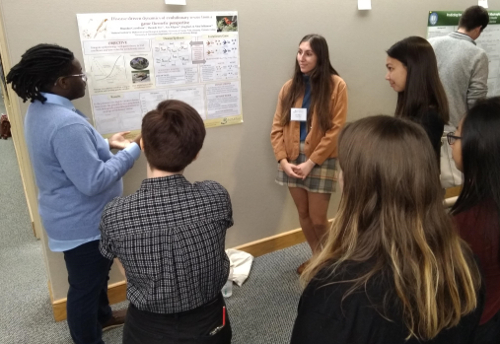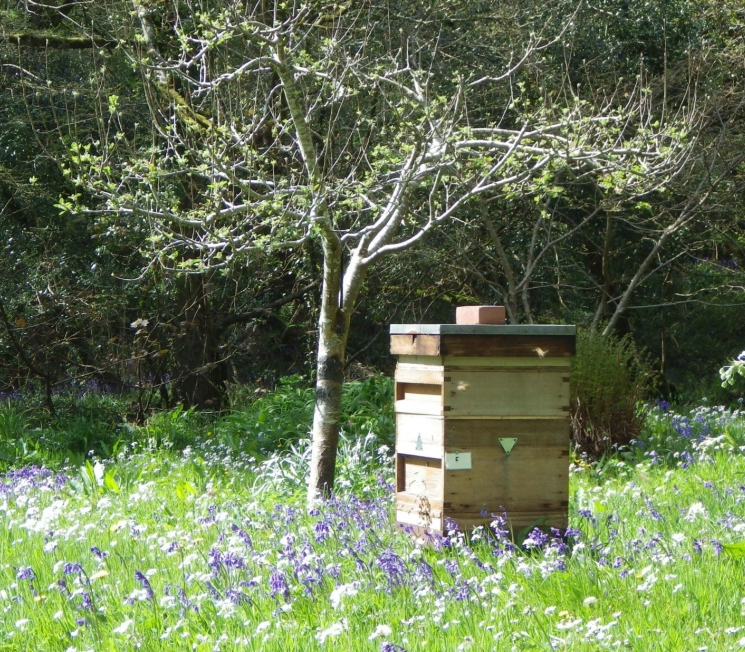The 12th Annual Undergraduate Research Conference at the Interface of Biology and Mathematics

Date: October 31 - November 1, 2020
Location: The conference wasconducted remotely this year due to COVID-19 concerns. We utilized the sococo platform that allows for personal avatars to move between rooms and sessions, interact in small groups and also participate in zoom sessions. Training sessions on the use of this platform were held prior to the Conference. Learn more about sococo: Sococo Basics - Tutorial and FAQs.
Objectives: The Twelfth Annual Undergraduate Research Conference provided opportunities for undergraduates to present their research at the interface of biology and mathematics. The conference included two plenary talks, student talks and posters, and a panel discussion on career opportunities. Faculty and students were invited to attend.
Graduate School Fair:
Online breakout rooms were available for the Graduate School Fair October 29, 30, and November 1.
Institutions participating in Graduate School Fair (pdf)
Keynote Speaker:
Gerardo Chowell,
Professor & Chair, Department of Population Health Sciences, Georgia State University School of Public Health, Atlanta
The power of mathematical and statistical modeling tools to combat the COVID-19 pandemic
Featured Speaker:
Olivia Prosper, Mathematics, University of Tennessee, Knoxville
Malaria dynamics within the mosquito
Abstract
The malaria parasite Plasmodium falciparum requires a vertebrate host and a female Anopheles mosquito to complete a full life cycle, with sexual reproduction occurring in the mosquito. While parasite dynamics within the vertebrate host, such as humans, has been studied using mathematical models, less is understood about dynamics within the mosquito, a critical component of malaria transmission dynamics. This sexual stage of the parasite life cycle allows for the production of genetically novel parasites. In the meantime, a mosquito's biology creates bottlenecks in the infecting parasites' development. We developed a two-stage stochastic model of the generation of parasite diversity within a mosquito and were able to demonstrate the importance of heterogeneity amongst parasite dynamics across a population of mosquitoes on estimates of parasite diversity. A key epidemiological parameter related to the timing of onward transmission from mosquito to vertebrate host is the extrinsic incubation period (EIP). Using simple models of within-mosquito parasite dynamics fitted to empirical data, we investigated factors influencing the EIP.

Pre-conference Talk: Volker Grimm, Professor, Department of Ecological Modeling, Helmholtz Centre for Environmental Research - UFZ, will give a pre-conference talk at 3:30 p.m. (EDT) on October 30. Topic: Modeling honeybees under stress with BEEHAVE: lessons for theory and practice. Abstract
What drives the decline and collapse of honey bee colonies? Several individual stressors are discussed, such as pesticides, diseases, reduced land use diversity or beeking practices, but there is growing consensus that multiple stressors are responsible. Since it is impossible to study all combinations of stressors in controlled experiments, models are needed to integrate and focus empirical research. BEEHAVE is the first model to integrate spatio-temporal forage supply in the landscape, foraging, energy and pollen budget, hive demography, diseases and beekeeping practices. I will present BEEHAVE and its purpose, its underlying rationale and past and future applications. I will also discuss how models for decision support should be designed and presented and why theory is necessary also for applications.
Video
Conference Program Outline
Conference Program with Poster and Oral Presentation Abstracts
All registration fees were covered by NIMBioS.
Click here for information about past conferences.
Click here for past conference photos.
For more information, contact:
Suzanne Lenhart
Associate Director for Education and Outreach, NIMBioS
Email: slenhart@tennessee.edu
Phone: (865) 974-4270 (Math) (865) 974-9349 (NIMBioS) Fax: (865) 974-9300
NIMBioS
1122 Volunteer Blvd., Suite 106
University of Tennessee
Knoxville,
TN 37996-3410
PH: (865) 974-9334
FAX: (865) 974-9461
Contact NIMBioS


